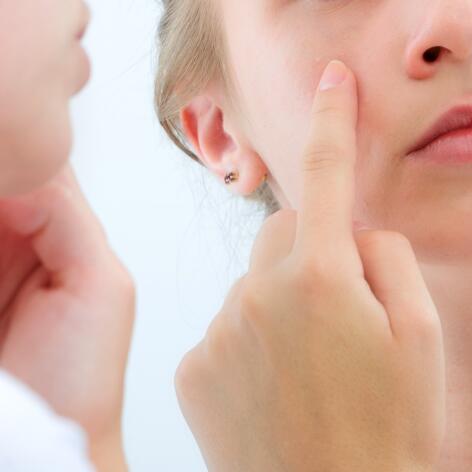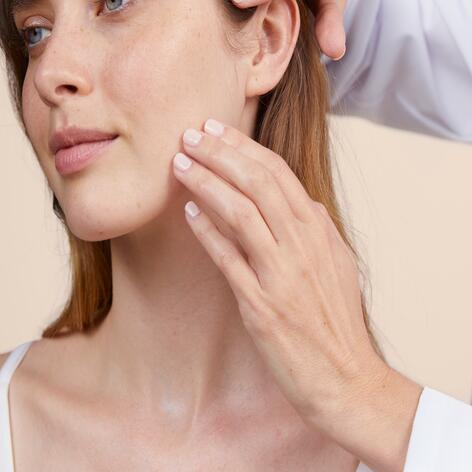Psoriasis and eczema in adults: our care and anti-itching tips
Psoriasis and eczema in adults: our care and anti-itching tips
Eczema and psoriasis: How to relieve itching?
Why is eczema and psoriasis itchy?
As you know, the urge to scratch is never pleasant. It can catch us at the worst possible moment and end up occupying all our thoughts! This can greatly affect our quality of life. When it comes to eczema and psoriasis, do you know where the urge to scratch comes from? There are many reasons. You may be experiencing inflammation during a flare-up. But it could also be that your skin is dry, or even that you've found yourself in an unexpected situation: anxiety, stressful events, etc. can trigger the onset of.. It's a vicious circle: the more you scratch, the more you want to scratch. That’s why it’s important to act on these different areas to regain some comfort.

100% of patients with atopic dermatitis, both children and adults, scratch their skin.
Joëlle Nonni, Head of Skin Health Education Workshops - Avène Spa
Hydration first
The key to fighting itching is moisturising. Why? Simply because this not only calms, but also prevents itching. And there’s no shortage of solutions. First, emollient skin care products can be used to moisturise your skin. Ideally, emollients should be applied once or twice a day. Little tip: always have a tube handy in your bag or in your office drawer.
You can also include thermal spring water in your treatment. A few generous sprays and the application of soaked compresses will help soothe your skin. Bonus tip: the cold anaesthetizes the itch.

Avoid itching: what are the benefits of emollients?
How to use your emollient
1. Several times a day
Use your emollient daily after washing. Take a generous amount of cream and spread it between your hands to soften it. Apply it to your face and body. Throughout the day, reapply the emollient if itching occurs.
2. How to distribute your cream properly
For the face, apply the cream gently with your fingertips. For the rest of the body, use broad strokes on the skin, without rubbing. Rubbing the skin to get the emollient to sink in will aggravate the skin further.
Itching: don't give in to temptation
When itching starts, it's best to avoid scratching. Why? Because it’s a real vicious circle. Scratching causes lesions and increases the risk of secondary infection. This makes you want to scratch even more.
In fact, five minutes of scratching can delay the effect of the treatment by fifteen days.
And if the temptation to scratch is too strong, act gently, with the flat of your hand, a massage roller or smooth pebbles. You can also rely on the soothing properties of cold: for example, using smooth pebbles that have been kept in the fridge. Why not cooling packs or a bag of frozen peas that you can leave on for 10 minutes? Be careful not to apply these directly to the skin.
Our solutions for itchy skin
Eau Thermale Avène skin care products designed to soothe atopic skin
- Avène Thermal Spring Water Spray
Thermal Spring Water
Avène Thermal Spring Water SpraySoothes - Restores the skin barrier - Calms
NEWSLETTER
We're always here for your skin!
All our advice on how to take care of your skin day to day.

Which skin care routine should you adopt?
Identify what it really needs with the help of our experts and discover the most suitable skin care routine for you.

